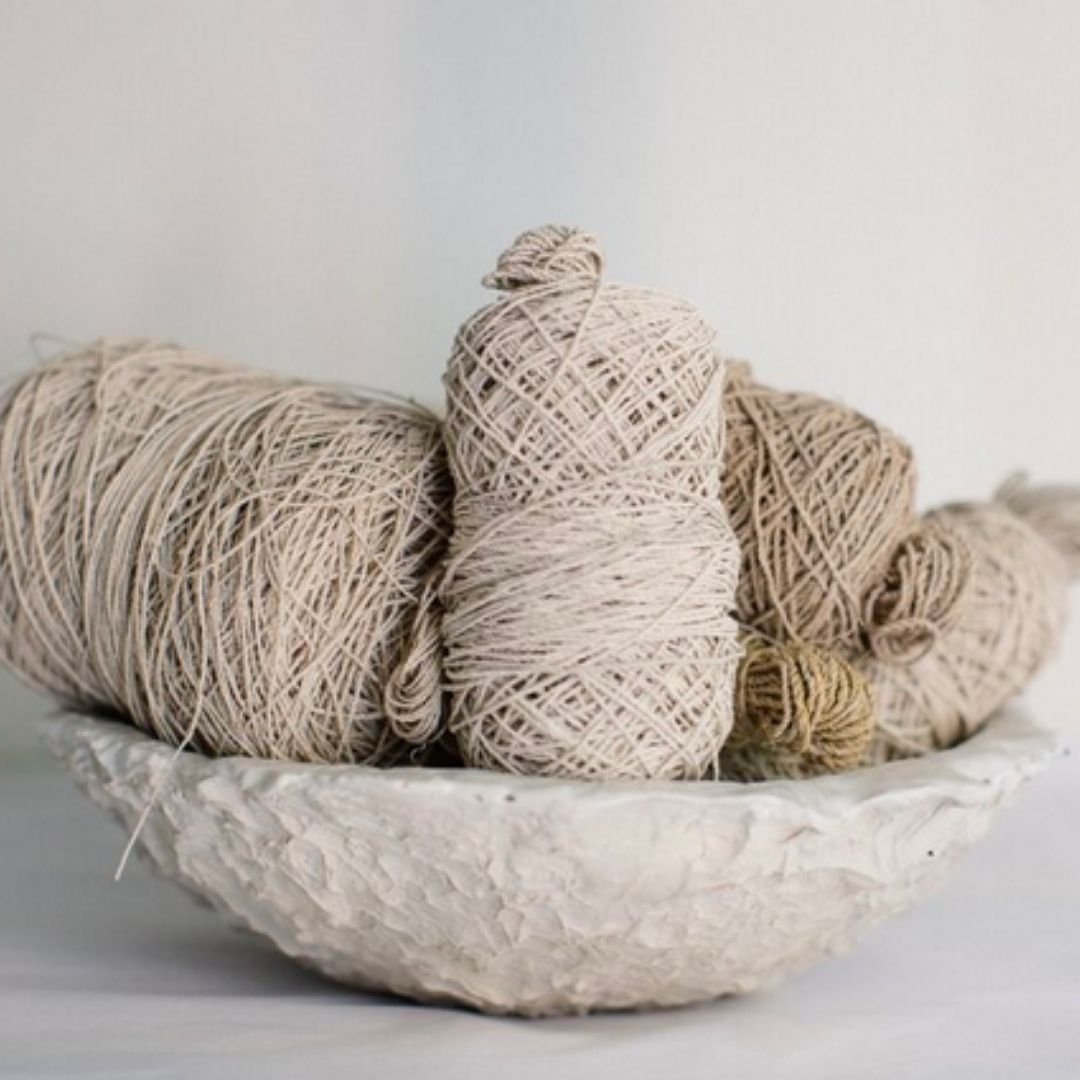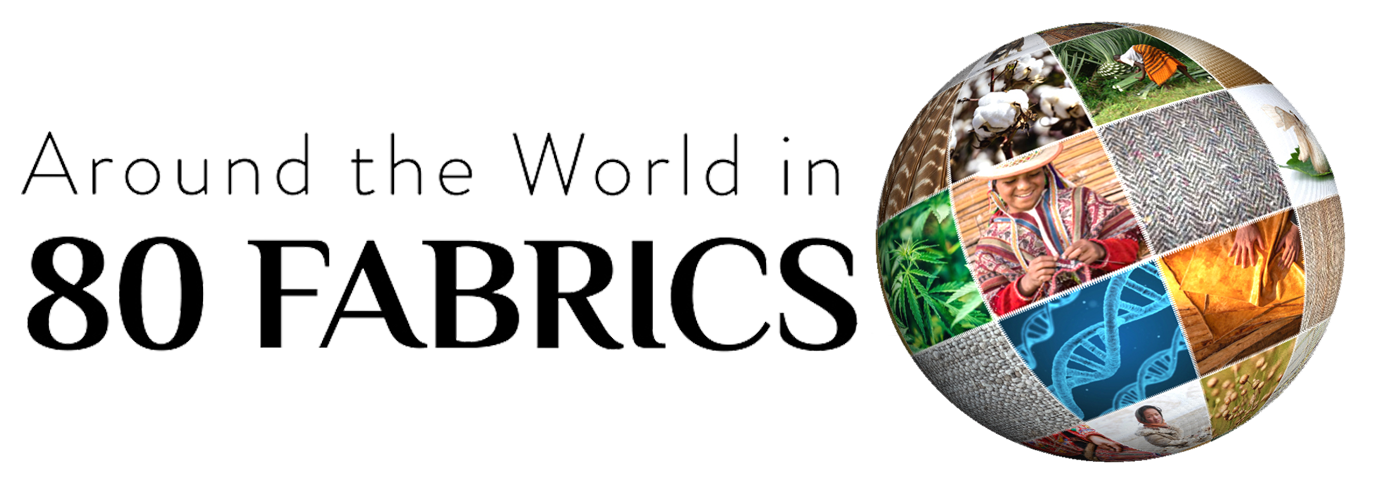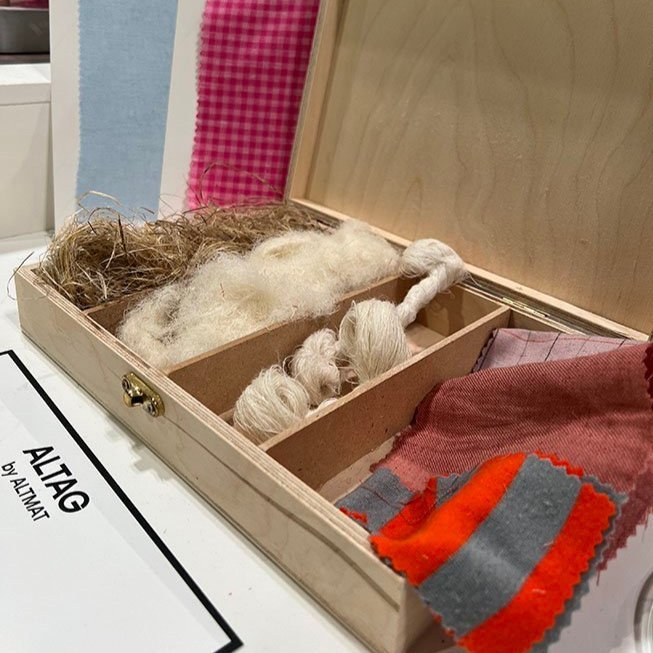
FABRIC: ALTAG
Regions: India
Fabric Name:
Altag
Origin:
Agricultural waste
Who made our fabric:
Altmat, a company that uses technology to convert agricultural waste into alternative textile materials (“alt” = alternative and “mat” = materials) was co-founded by Shikha Shah and Vishnu Shah.
Natural history and ecology:
Creating the Altag fabric starts with buying agricultural waste from farms in the region. Next, the waste heads to the laboratories and factories. There, using microbial sciences, Altmat’s low environmental impact technologies process the agricultural waste and convert it back into natural fibers that can be made into Altag fabrics.
What makes this so special:
Alt Yarns are high-quality environment-conscious yarns made by blending Alt Natural Fibres from food crop waste of plants like hemp oil seed plant waste with any desired materials like cotton, modal, lyocell, recycled polyester, etc.
Upgrading
agriculture waste into
natural materials.

“Whatever is waste is still the same thing at the DNA level as what it was when it was new. So there has to be a way to revive that DNA. If there is a modern medicine for humans to increase their longevity and things like that, why not for things?”
— Shikha Shah / Altag
Shikha Shah
Shikha Shah, the founder of Altmat. Over the years, her curiosity for climate action, materials sciences, supply chains and economics spiraled into building AltMat. AltMat focuses on transforming agriculture waste into high performing natural fibers and yarns. This innovation uses mechanical as well as benign chemical and microbial science to turn the fibrous parts of agricultural waste into versatile and high-performing natural fibers. At present, the company transforms plant waste like hemp, pineapple, kenaf, nettle, and banana into bast fibers and yarns. Unlike many other biopolymers (produced by microorganisms, plants, animals, or chemically synthesized from biological starting materials), which often feel more akin to something like polyester, the fibers produced by AltMat feel closer to cotton or linen. In her interview with @atw80fabrics Shikha stated her concerns for the future: “What happens after the post-petroleum era? We should think about it before it's too late. This question has shaped my entire life. My father established a company, which specializes in recycling automobile waste into metals. Growing up alongside that company, I was immersed in the principles of the circular economy long before it became a popular term. I listened to discussions about recycling, pollution, manufacturing processes, and the transformation of waste into value. [This] greatly influenced my upbringing. Furthermore, my mother emphasized two important values: kindness is just as crucial as performance, and performance is just as vital as kindness." Shikha and the Altmat team hopes that their invention can reduce microfiber pollution and discourage the common practice of simply burning biowaste by providing farmers with an alternative source of income.


